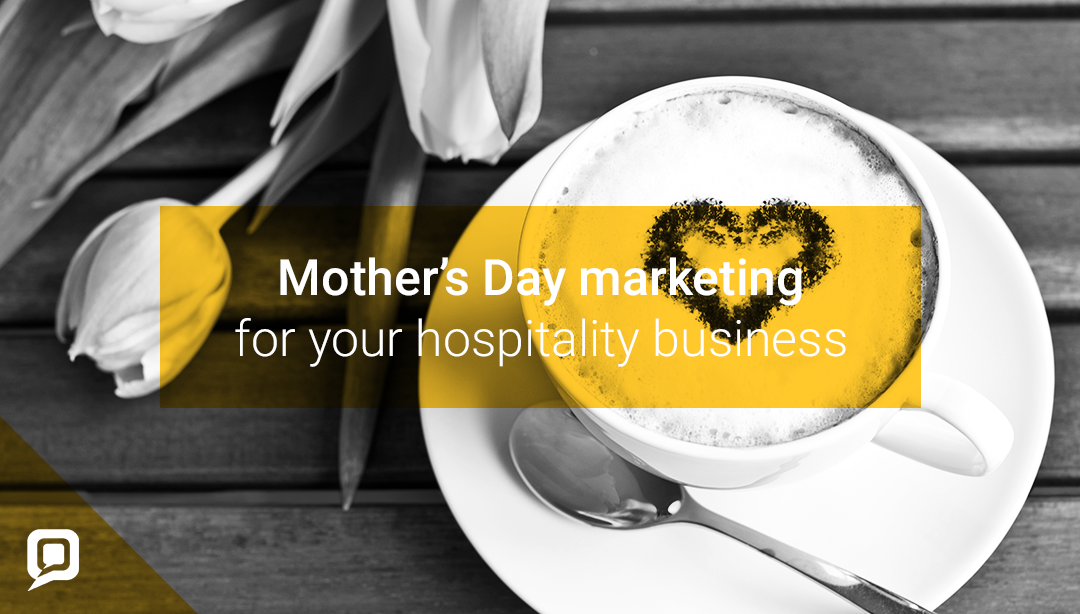
Make the most of your hotel’s email marketing moments this March
The UK population are spending an impressive £79 billion on domestic tourism.
British holidaymakers opted to take more domestic breaks or ‘staycations’ rather than travelling abroad last summer, with the trend set to continue this year due to lingering ‘Brexit fear’.
According to the latest study from VisitBritain, 56% are planning to holiday at home in 2020, with events such as the UEFA Euro 2020 being held in London over the summer contributing to this continued preference for domestic travel.
With this in mind, are you doing anything to ensure that these guests choose your hotel over your competitors?
Benefits of email marketing
Save money – in comparison to traditional marketing, email is a much more cost-effective way of keeping in touch with your guests throughout their customer journey.
Save time – automation means that emails can be scheduled at the perfect time. Whether it’s an auto-response to a question about your hotel availability, or a confirmation email right after booking, today’s customers appreciate instant responses, and your team will be freed up to focus on other tasks.
Reach guests no matter where or when – as long as people are connected online, they can receive your marketing emails and engage with your brand on various devices, such as: mobile, tablet and desktop,
Target guests using personalisation – email marketing allows for greater scope when sending personalised messages to your guests.
People subscribe to email lists for different reasons, with some looking for the best deals on their next stay, whilst your loyal customers will want to stay connected with your promotions, topical content and community updates.
Email marketing enables you to customise your message for each individual on your list.
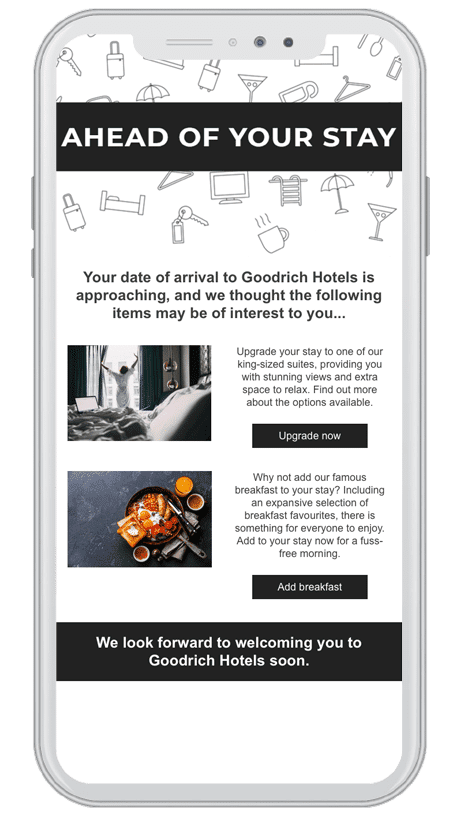
What should you be sending?
Welcome new mailing list sign-ups with an introductory email, informing them of what services you offer and any points of interest in your local area to encourage bookings.
Provide regular updates about your hotel or restaurant facility, including seasonal menus.
Booking confirmations with the details of their reservation and the opportunity to add extra services to their stay.
Follow-up messages post-stay to gather feedback, increase reviews and referrals, and encourage guests to return.
Keep in touch after booking cancellations as these guests could be won back at another time. If you aren’t in touch with them, your competitors definitely will be.
Exclusive deals and discounts to incentivise guests to book, such as room rate offers and rewards for returning customers.
Have you started thinking about your March send plan?
Happy Mother’s Day
With Mother’s Day coming up on the 22nd March, what are you doing to capitalise on this key calendar event?
Collectively, we’ll spend close to £1.6 billion on our mothers this year, with gifts of personalised cards (£50 million), flowers (£260 million) and spa packages or experiences (£1.4 billion).
Although our email focuses on an afternoon tea offering, you can use this as inspiration for your own campaign, whether you’re promoting a weekend away or pushing your spa and restaurant bookings instead.
Around this time of year, many people will be struggling for ideas for what to get their mum as a gift to show how much she’s appreciated.
Save them valuable time and take the pressure off by getting your offer in front of them early.
Talk to us for more information.

How was your stay?
As we’ve already covered, it’s highly important to remain in contact with your guests throughout their customer journey with you.
Sending them an email post-stay is potentially one of the most vital touch-points to show that you care about their experience, and to ask for vital feedback that can benefit you when it comes to making improvements and finding out what works and what doesn’t.
Keeping communications flowing with guests after their departure helps to promote loyalty and encourages them to return next time they plan on visiting the area.
So, send a communication such as this example a day or two after check-out, and consider including exclusive offers to incentivise repeat bookings.

Each month, we provide our hospitality customers with an inspirational send plan that they can adapt to suit their business and send to their guests. For more information, book a free, no-obligation consultation.

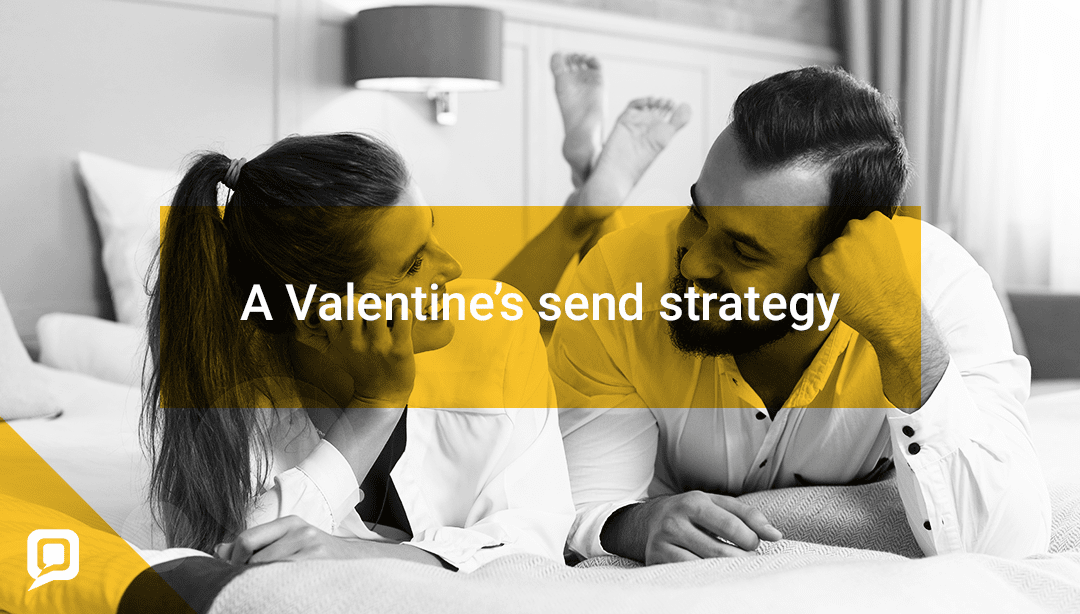
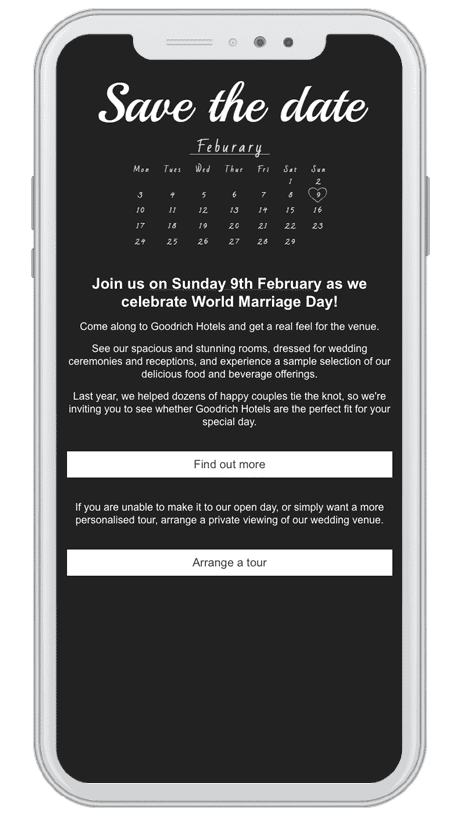
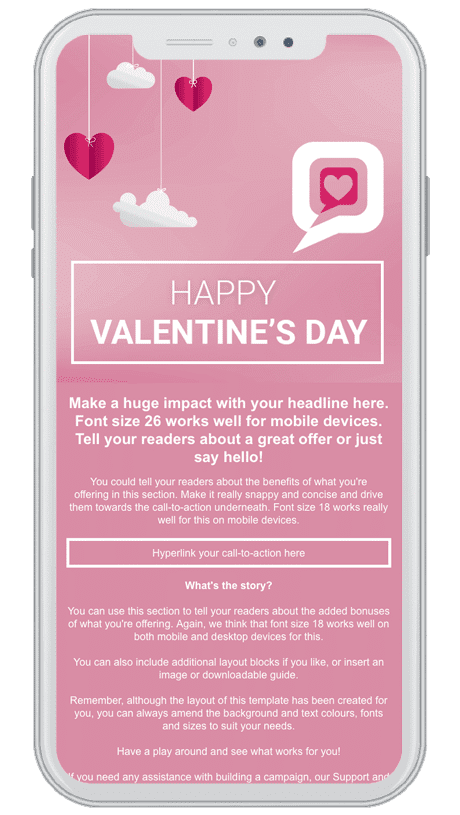
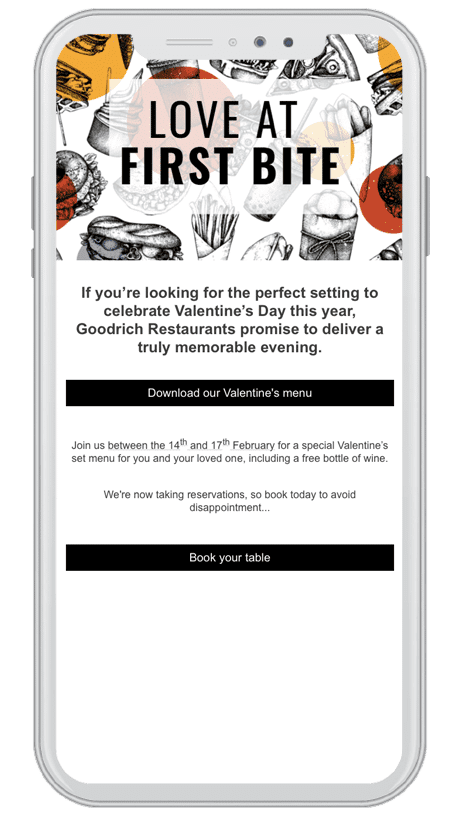
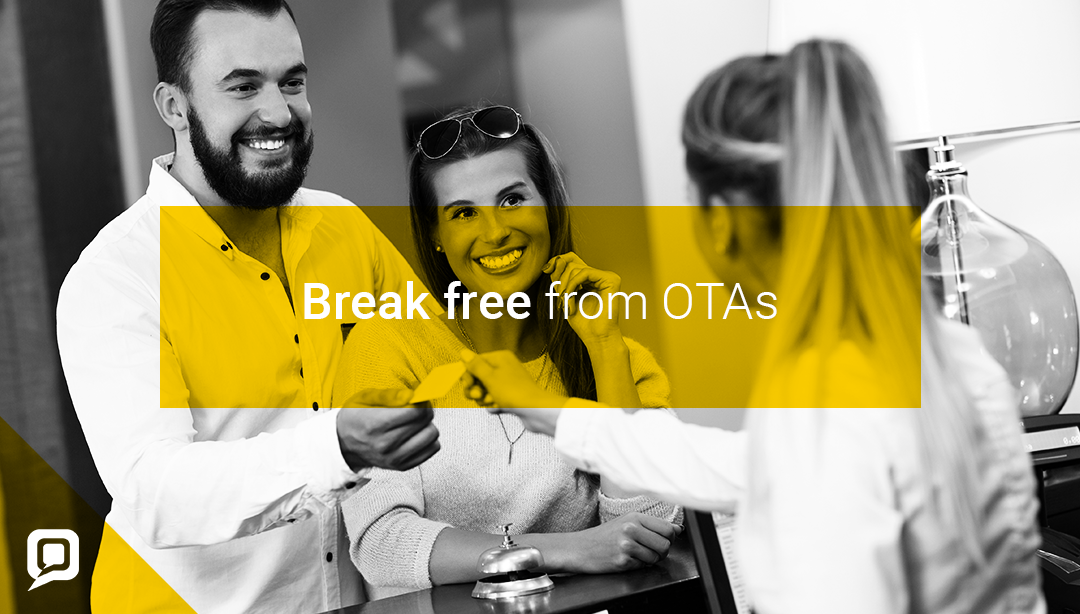
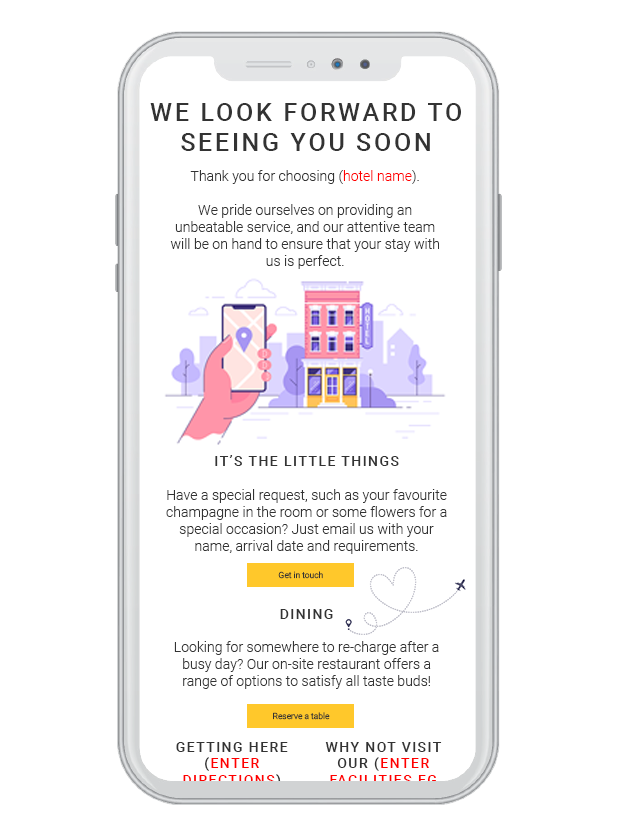
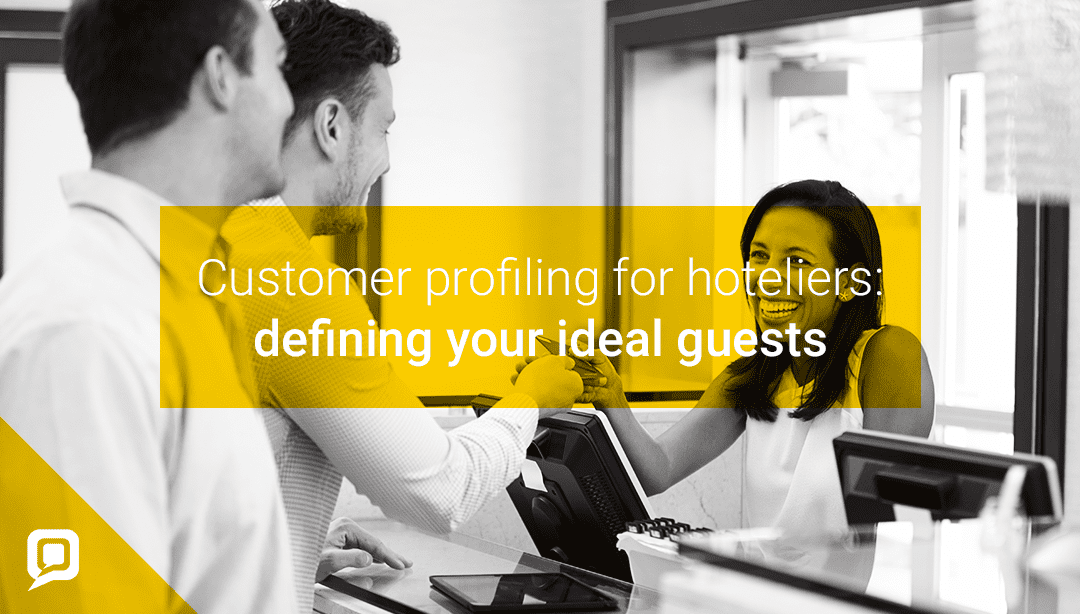
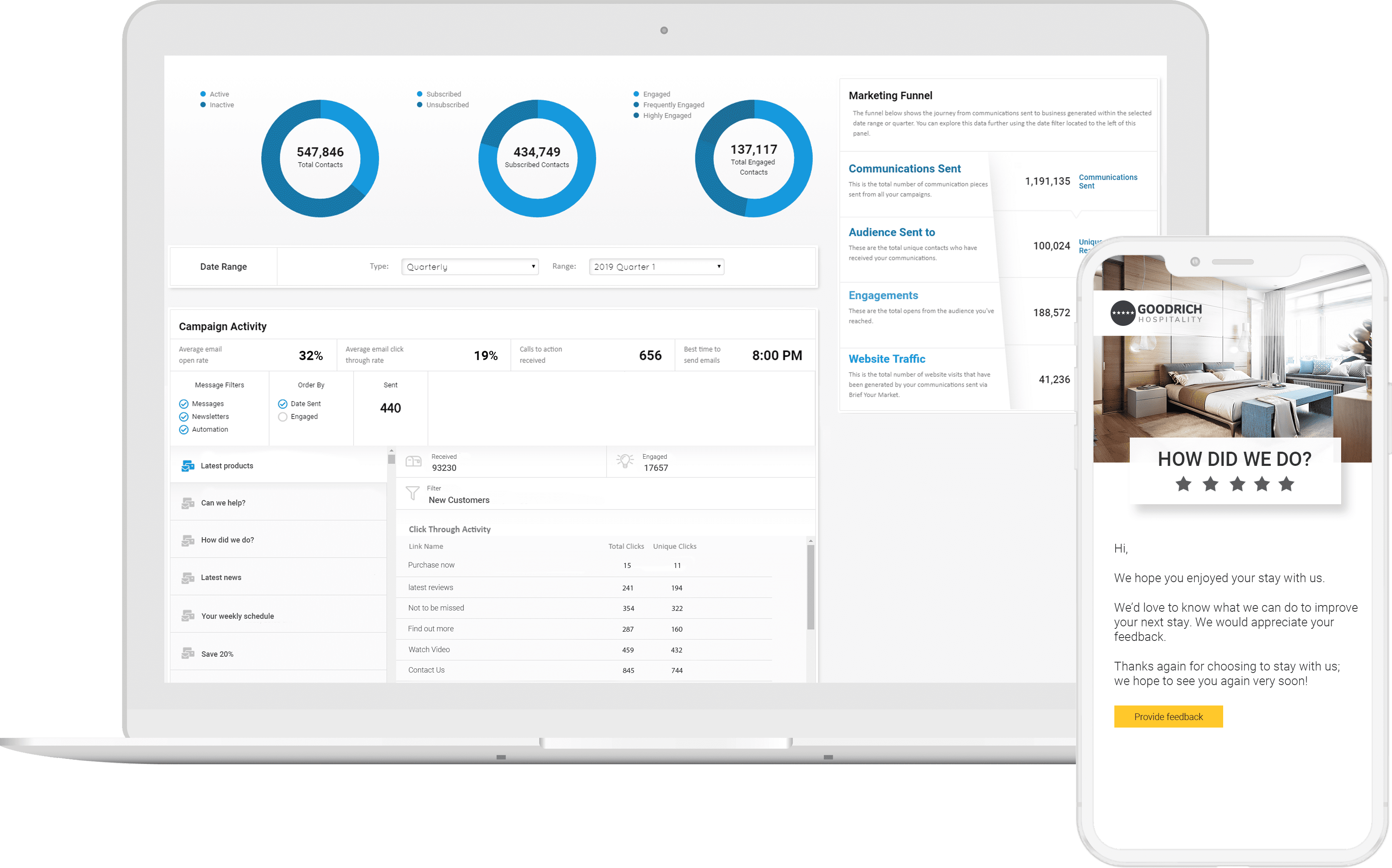
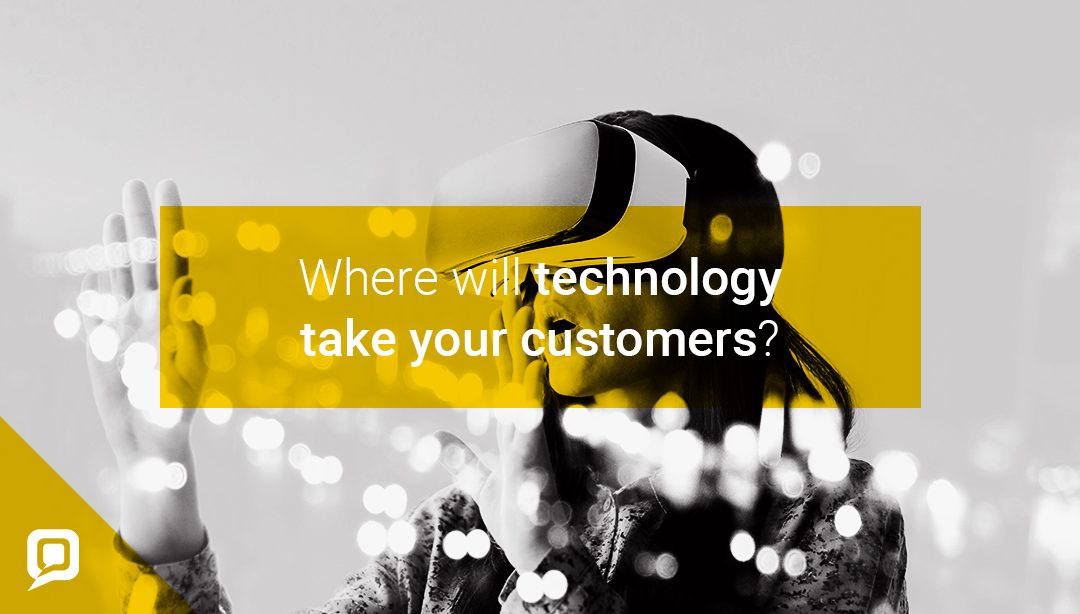
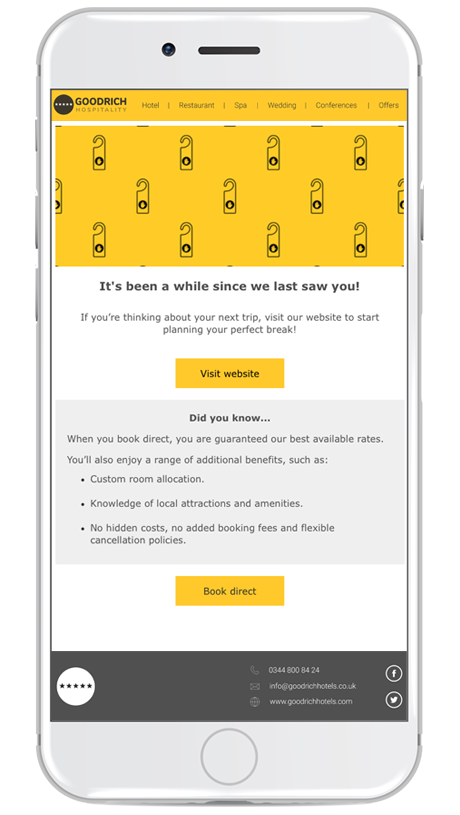
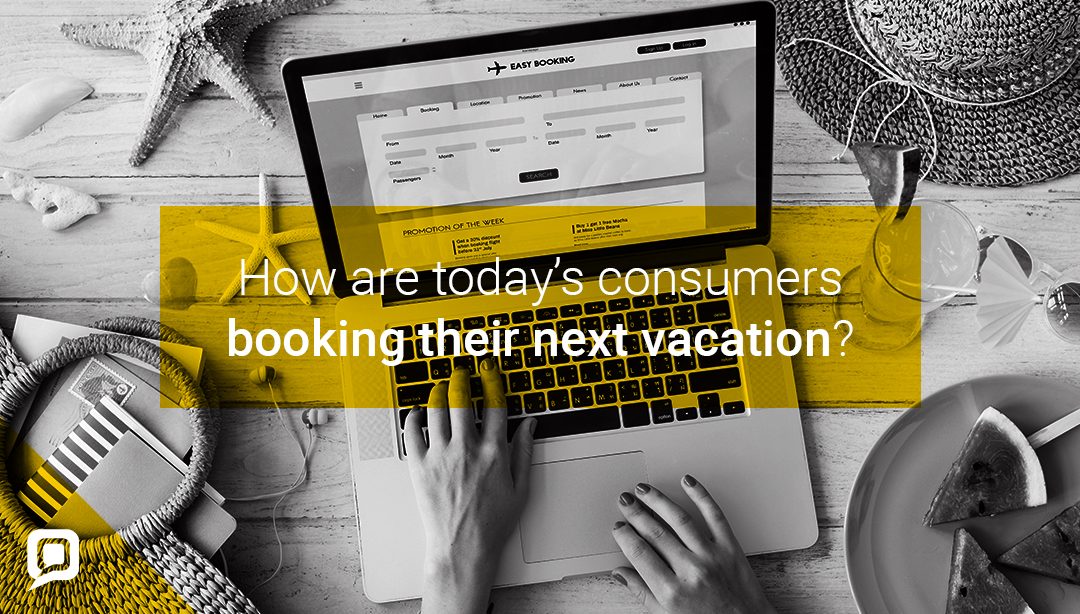
Recent Comments